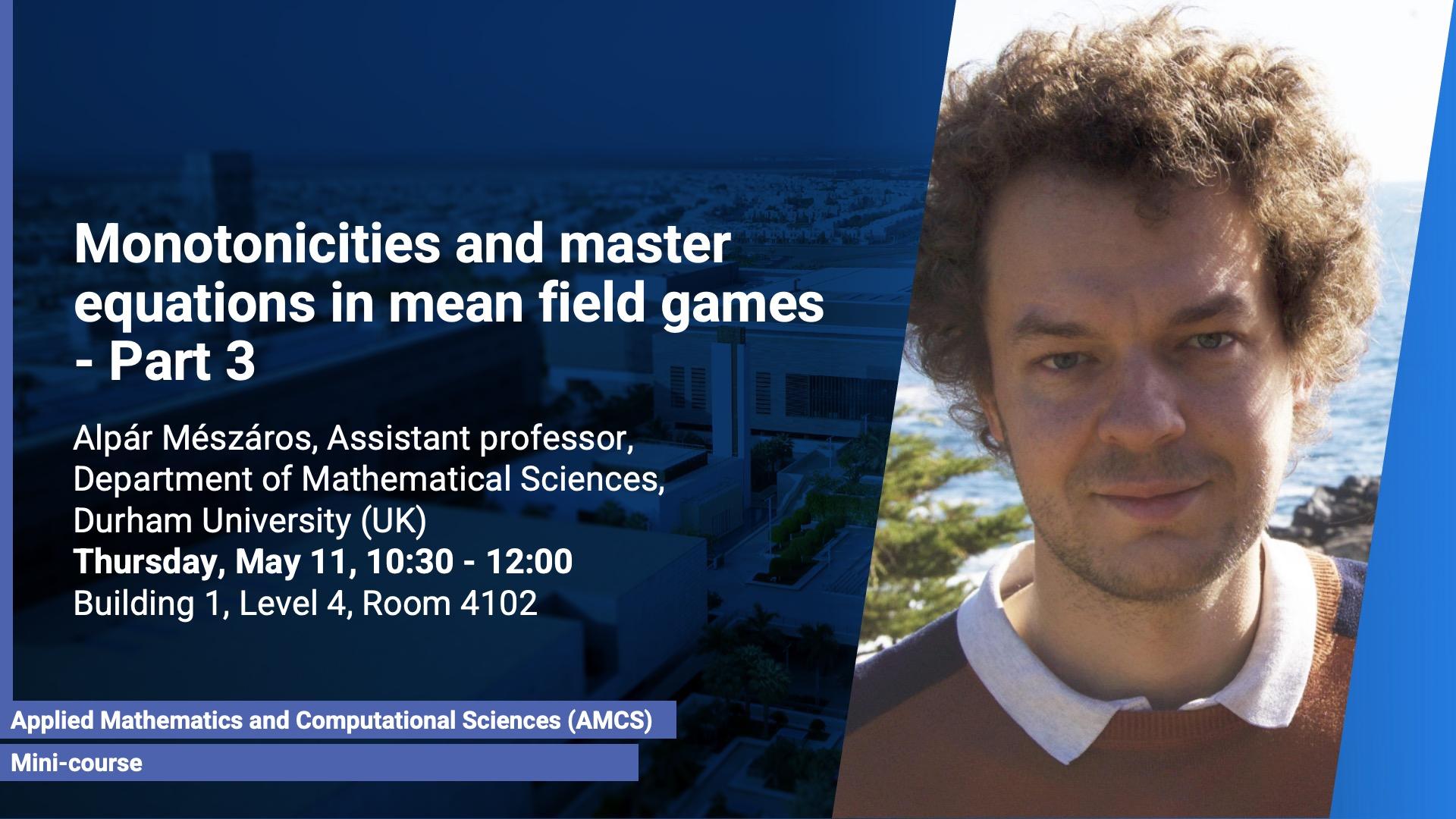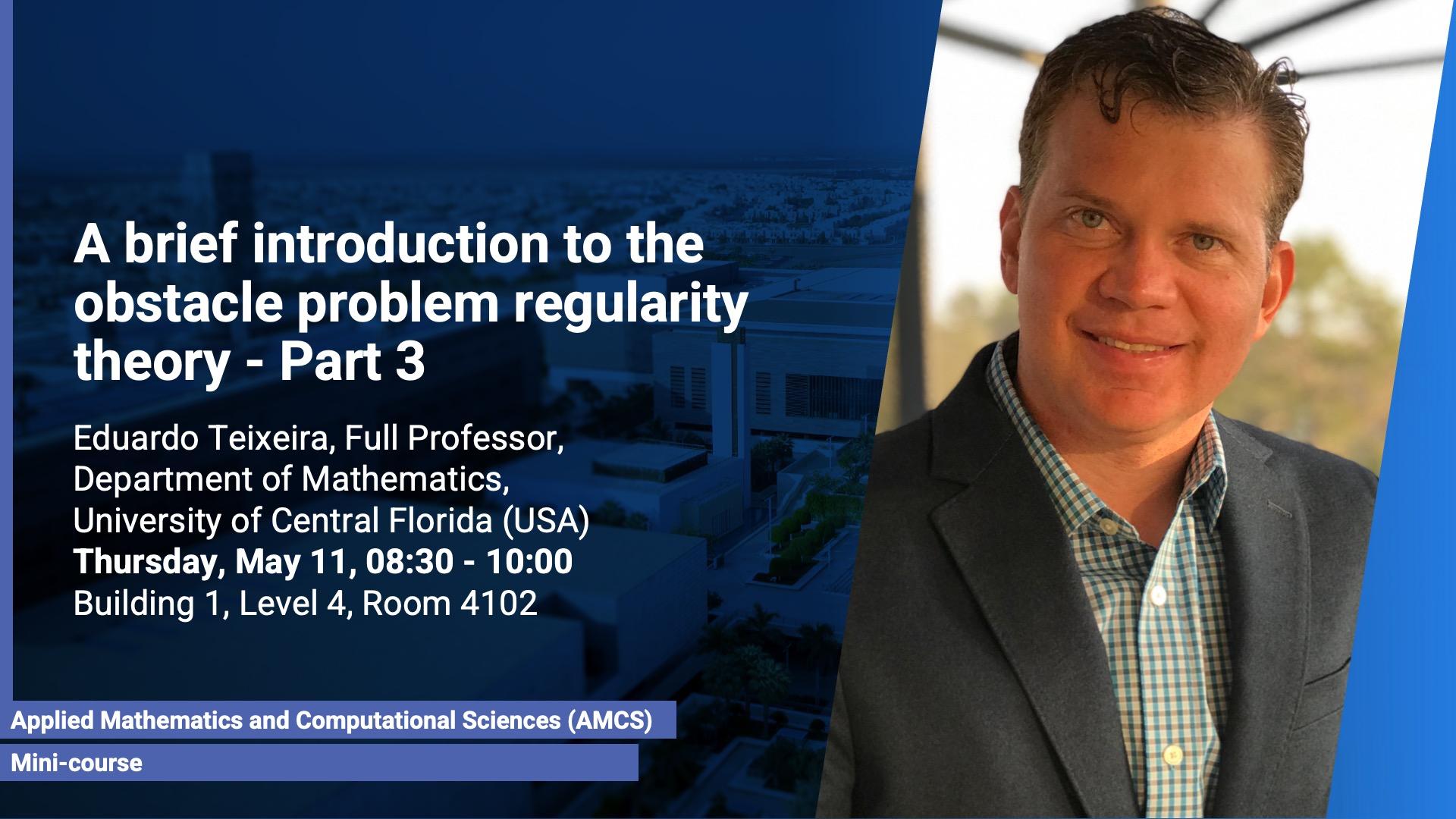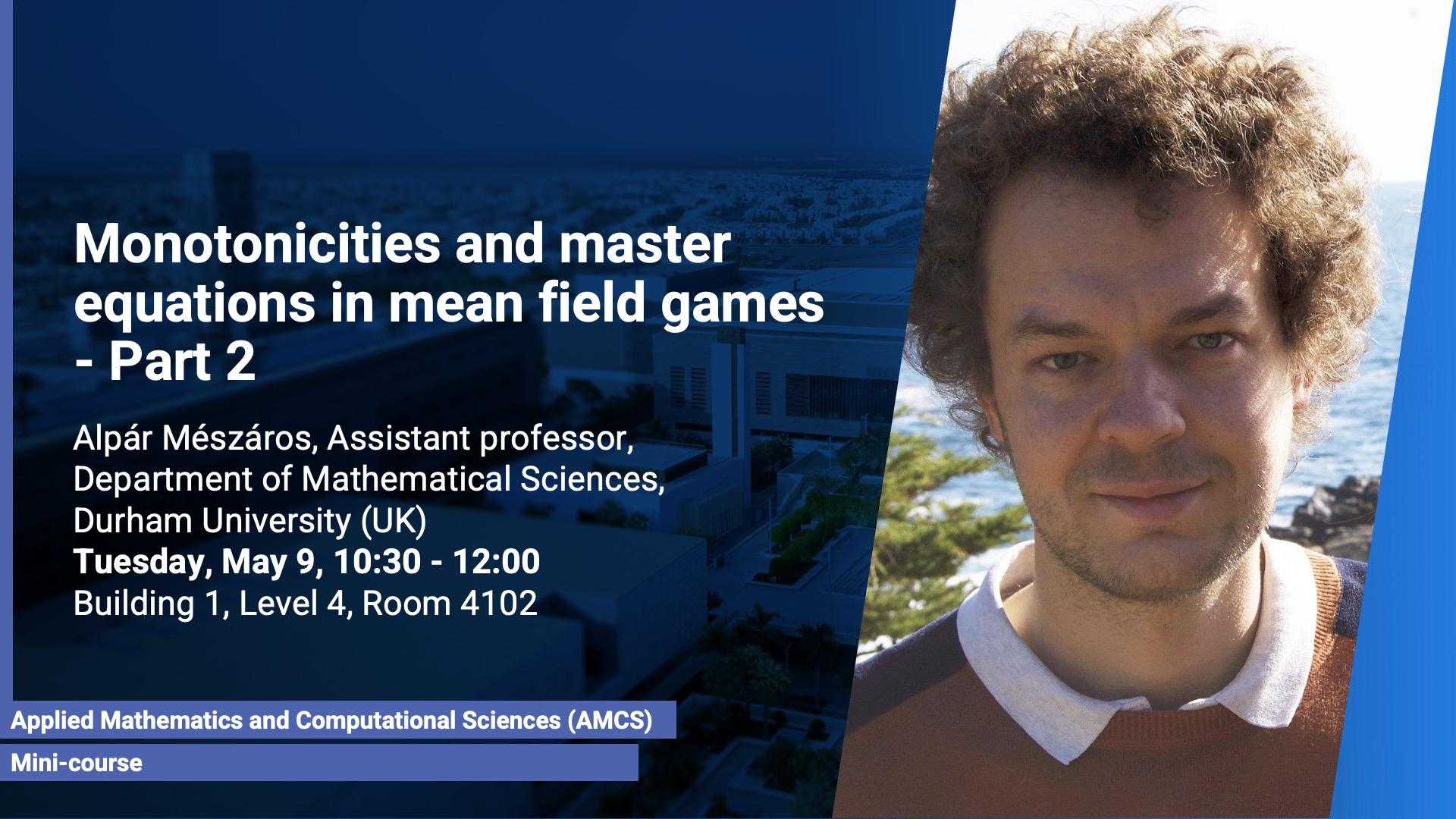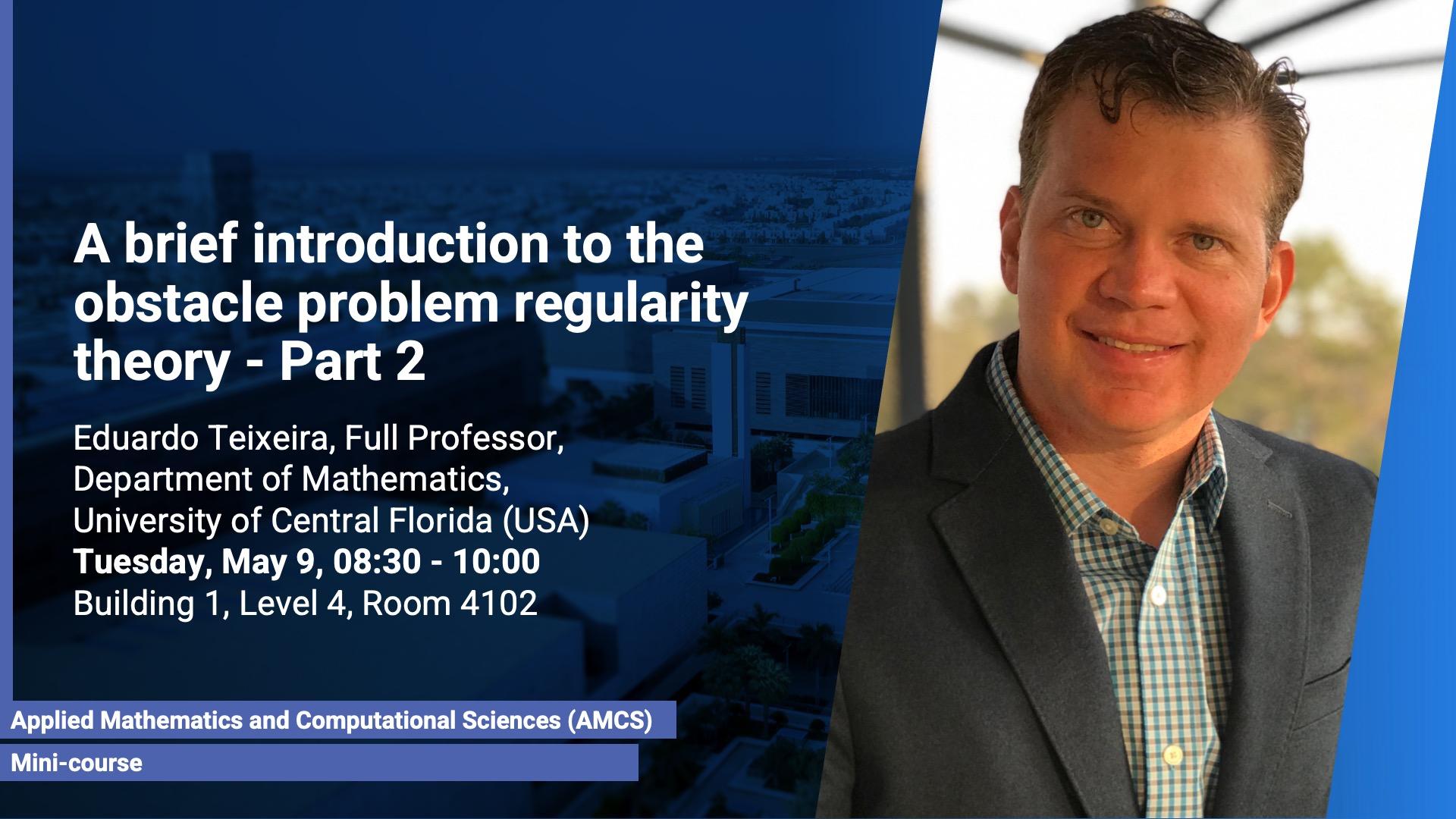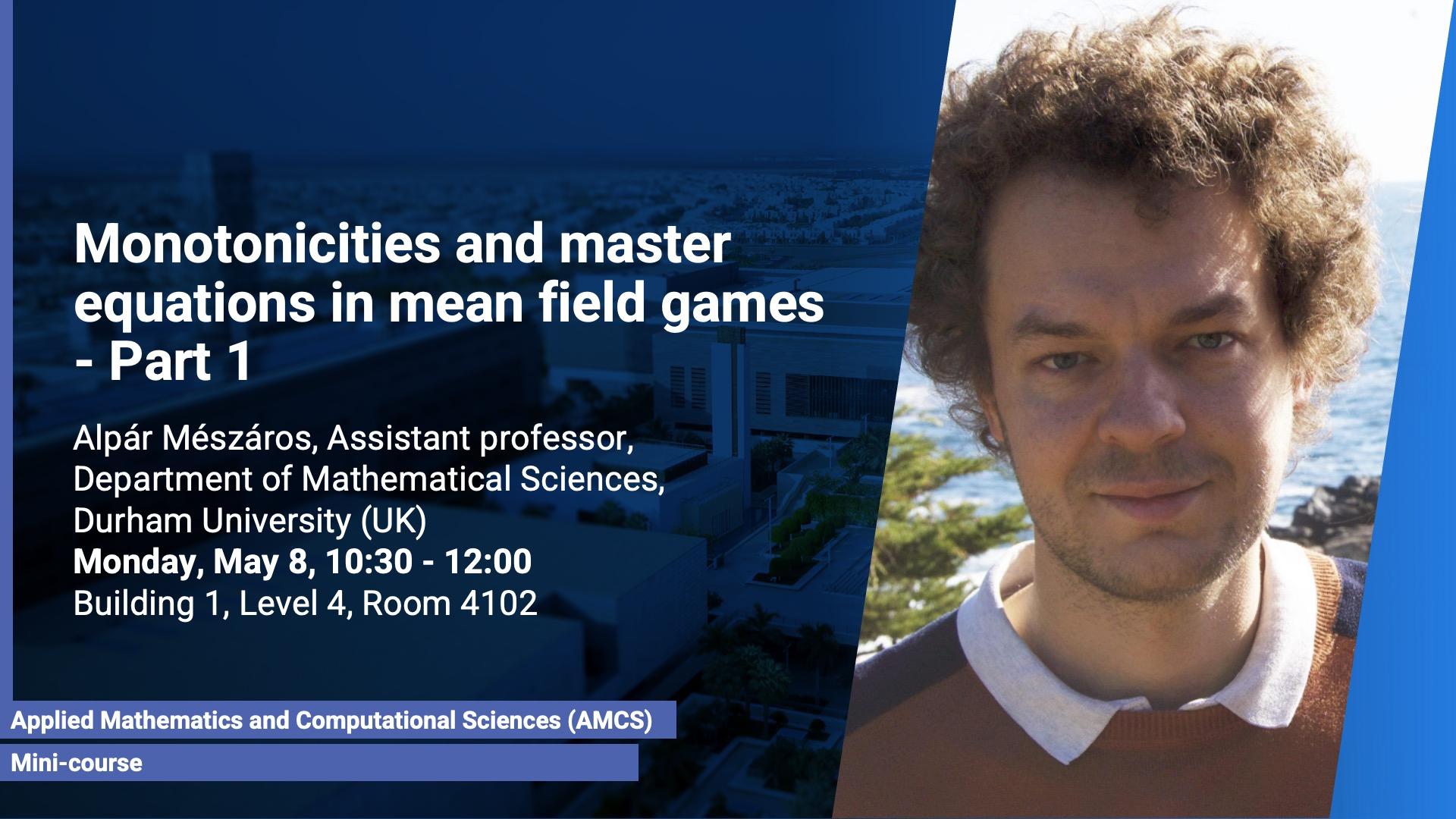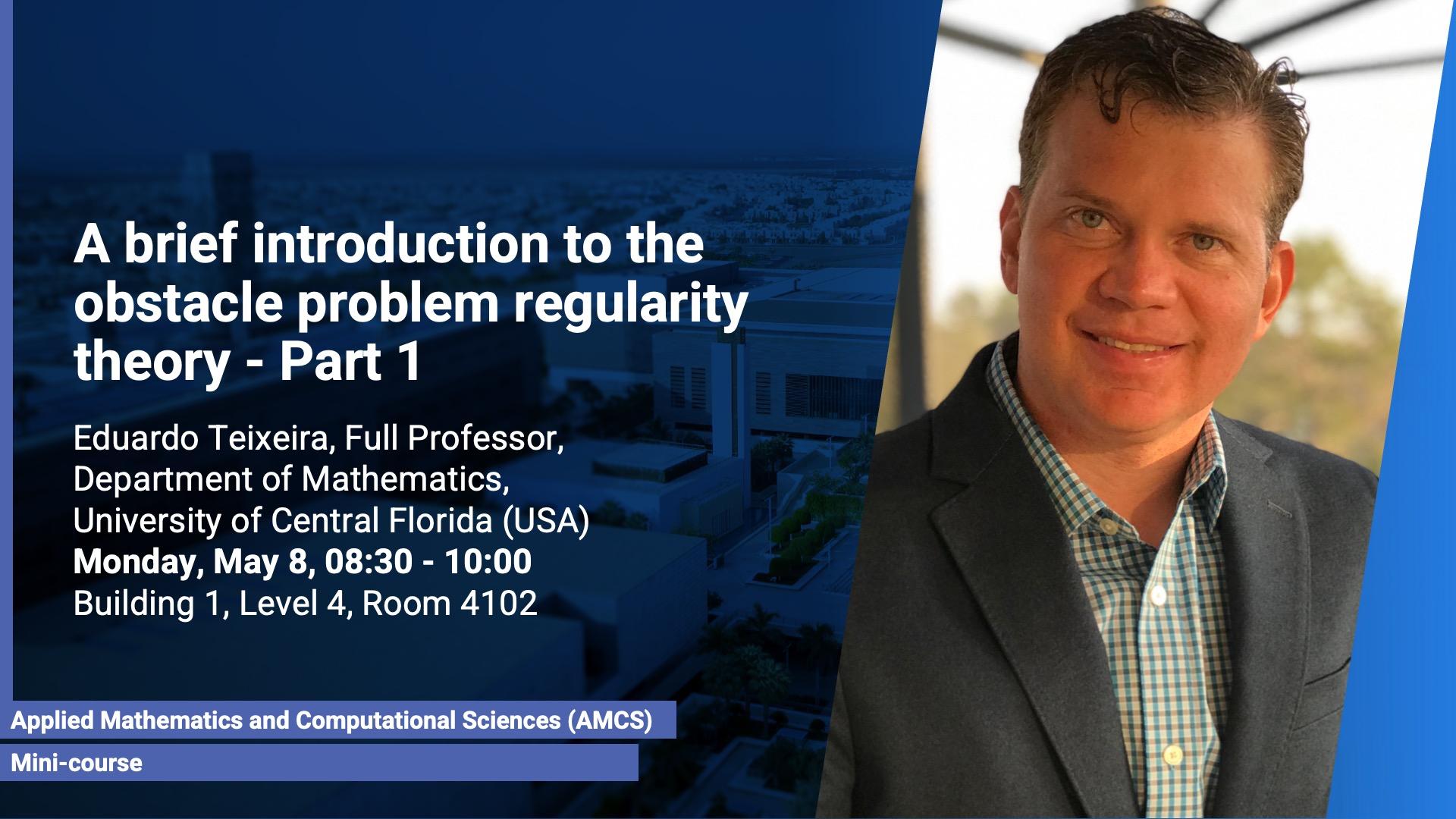Alpar Meszaros, Assistant Professor, Department of Mathematical Sciences, Durham University (UK)
Thursday, May 11, 2023, 10:30
- 12:00
Building 1, Level 4, Room 4102
Contact Person
The theory of mean field games (MFG for short) aims to study limiting behavior of Nash equilibria of (stochastic) differential games when the number of agents tends to infinity. While in general existence of MFG Nash equilibria can be established under fairly general assumptions, uniqueness is the exception rather than the rule.

